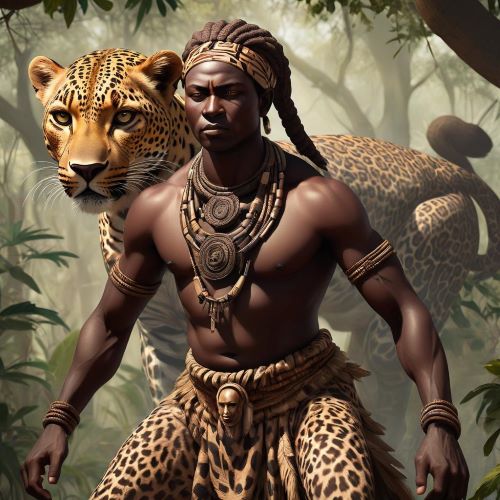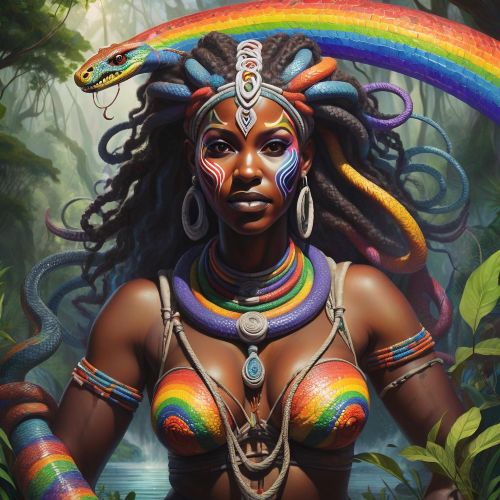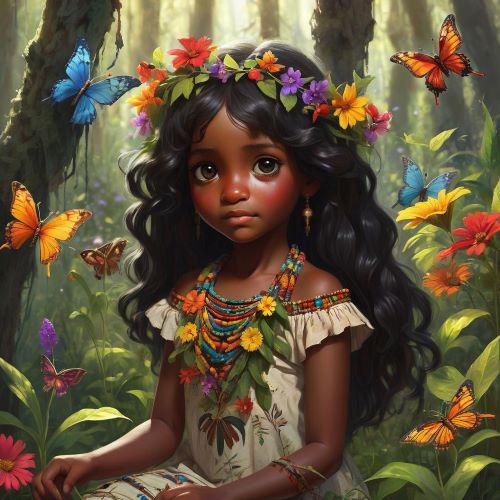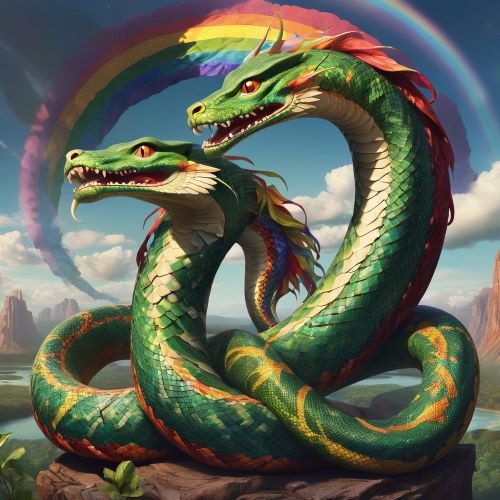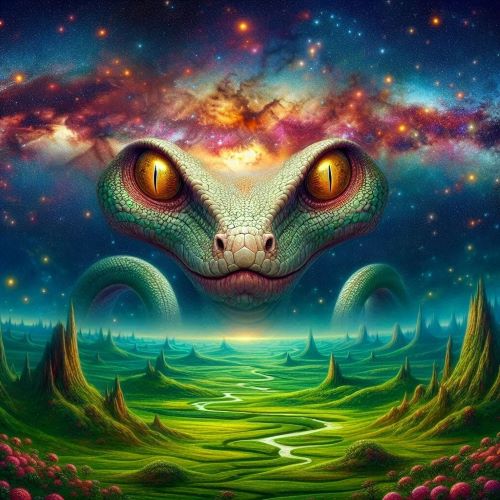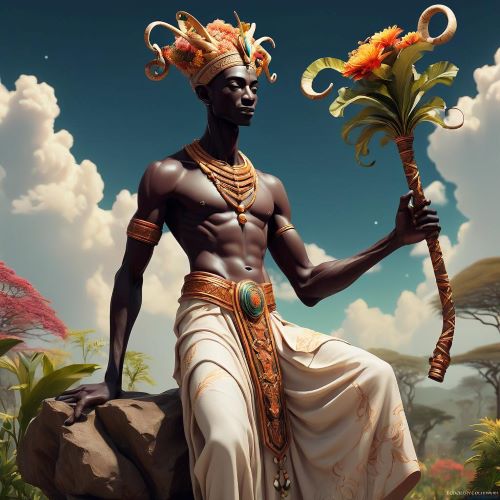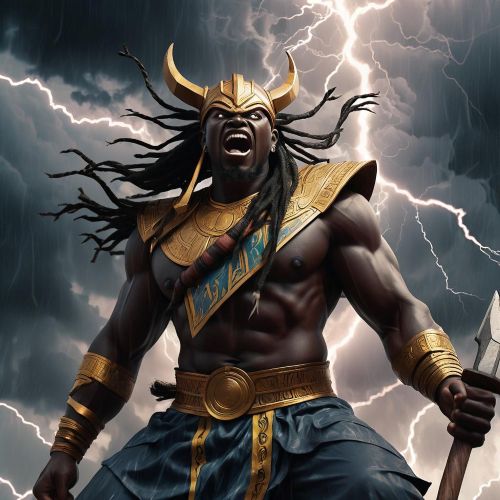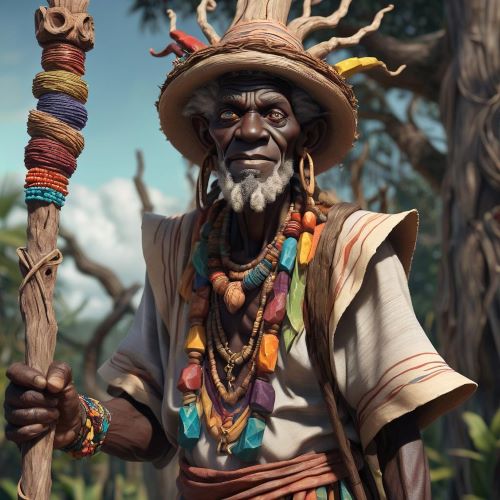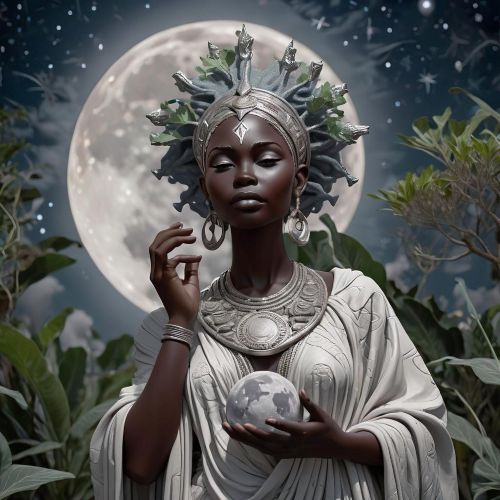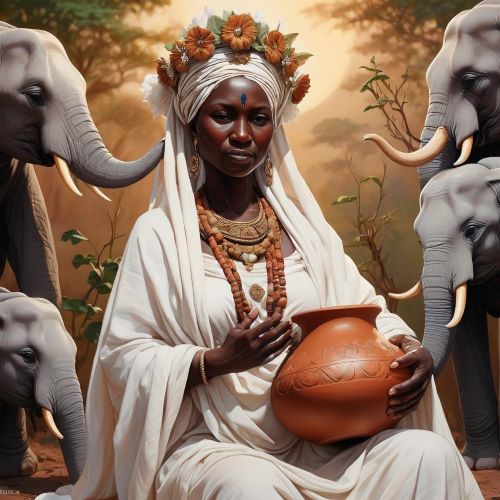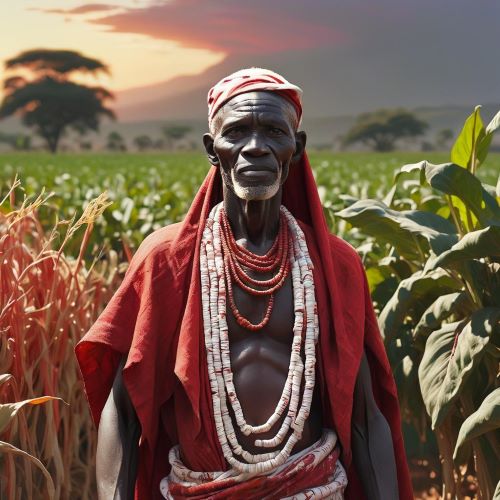Dahomey, Vodun, Fon & Ewe Mythology
Dahomey, Vodun, Fon, and Ewe mythology together form one of the richest and most influential spiritual traditions of West Africa. Originating among the Fon and Ewe peoples of what is now Benin, Togo, and parts of Ghana, this mythology centers on a vast and dynamic pantheon that connects the divine, the ancestral, and the natural worlds. Known collectively as the Vodun tradition (from which Haitian Vodou and other Afro-Atlantic faiths evolved), these beliefs reveal a universe alive with divine forces — a world where the sacred resides in water, wind, fire, and the human spirit. Rooted in the ancient Kingdom of Dahomey, this mythology shaped one of Africa’s most sophisticated cosmological systems, one that continues to thrive both on the continent and across the diaspora.
At the heart of Dahomey and Fon mythology stands the supreme divine principle known as Mawu-Lisa, a dual deity representing the balance of feminine and masculine energy, moon and sun, night and day. Mawu, the moon goddess, embodies compassion, fertility, and motherhood, while Lisa, the sun god, symbolizes strength, wisdom, and creation. Together they represent the harmony of opposites — the universal rhythm of duality that sustains all existence. From their union came the world and the lesser deities known as the Vodun, spiritual beings who govern every aspect of nature and human life.
Among these divine forces are some of Africa’s most powerful and enduring spirits. Legba, the guardian of crossroads, is the divine messenger and interpreter between humans and the gods. Sakpata, the earth deity, rules over disease, healing, and fertility, while Heviosso (also called Xevioso) commands thunder and justice. Dan, the sacred serpent, symbolizes cosmic order and renewal, encircling the universe as the eternal link between creation and continuity. Each Vodun spirit represents a principle of existence — water, fire, fertility, justice, death, and rebirth — and each community or family lineage maintains relationships with particular spirits through ritual, music, and offerings.
The Ewe people, closely related to the Fon, share similar beliefs but emphasize the role of the creator god Mawu and the ancestral spirits who dwell among the living. The Ewe see the natural world as a manifestation of divine will; rivers, forests, and storms are not mere elements but conscious entities that sustain life. Ancestral veneration, called Se, forms the moral foundation of Ewe cosmology — it is through remembering and honoring the dead that the living maintain order in the visible and invisible realms.
Vodun mythology extends far beyond its West African roots, carried by enslaved Africans to the Caribbean and the Americas. There, it transformed into Haitian Vodou, Cuban Lucumí, and Brazilian Candomblé, blending African cosmology with elements of Christianity and indigenous spirituality. Yet at its core, Vodun remains true to its Dahomean origins — a religion of balance, reciprocity, and respect for all living things. It teaches that divine power flows through every being and that maintaining harmony between gods, humans, and nature is the essence of sacred order.
Through Dahomey, Fon, and Ewe mythology, the voice of ancient Africa still speaks — through drumming, dance, and devotion — reminding the world that the divine is not distant, but alive in every rhythm of existence.


